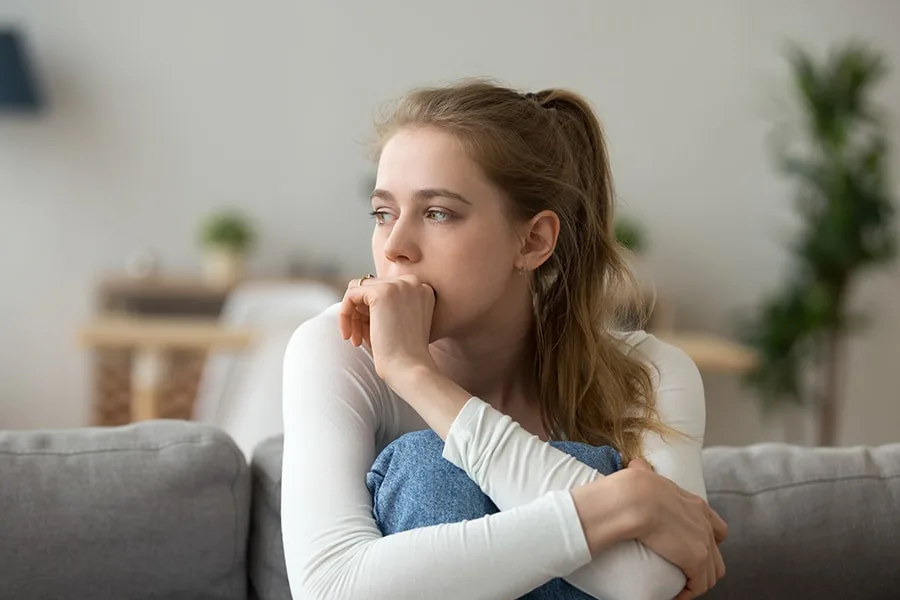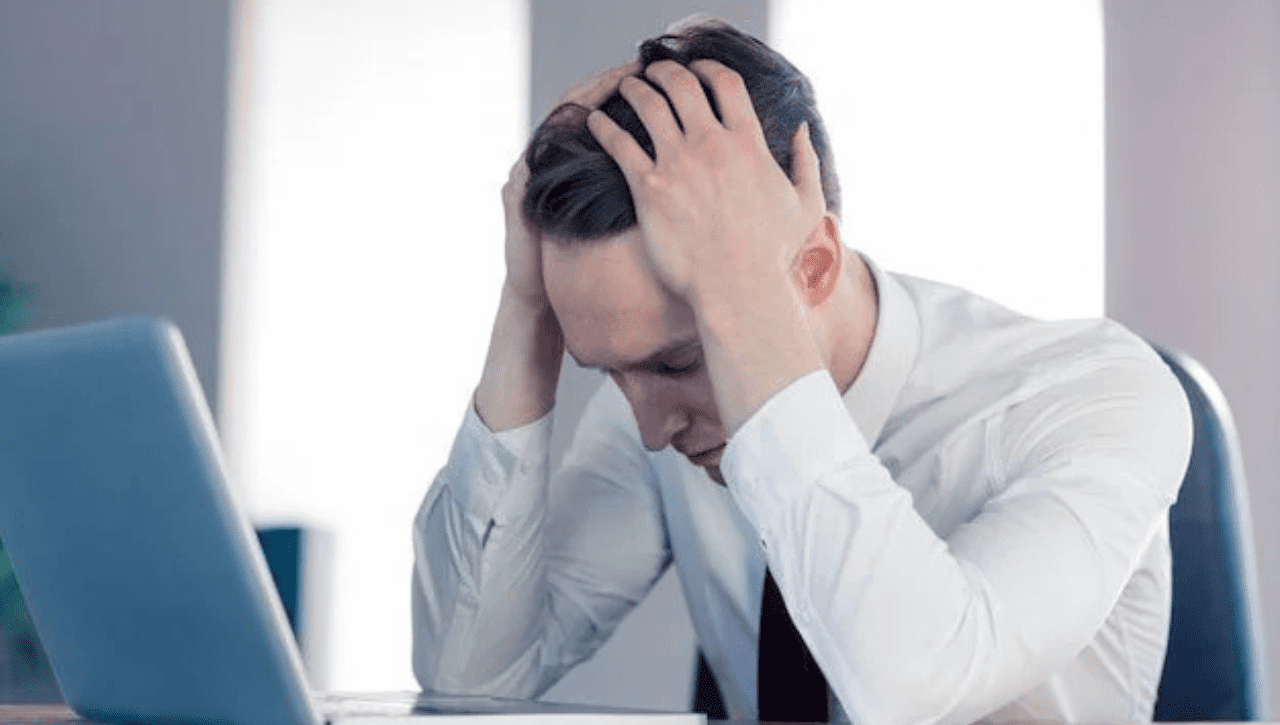What Does an Anxiety Attack Feel Like?
Anxiety attacks can be overwhelming experiences that leave individuals feeling out of control. To better understand how to manage these situations, it’s essential to dive into what does an anxiety attack feel like, what causes them, and how to recognize the signs of anxiety. By exploring these aspects, individuals can gain valuable insights into managing anxiety and preventing its escalation.
Anxious Feeling
An anxiety attack, often mistaken for a panic attack, is characterized by an intense surge of fear or discomfort that builds rapidly. People experiencing an anxiety attack may describe a range of sensations, including:
- Rapid Heartbeat: A pounding or racing heart is a common physical reaction during an anxiety attack.
- Shortness of Breath: Many individuals feel as if they can’t catch their breath or are suffocating.
- Chest Tightness: A sensation of pressure or pain in the chest can mimic symptoms of a heart attack, adding to the fear.
- Dizziness or Lightheadedness: Feelings of faintness or unsteadiness are frequent during these episodes.
- Sweating or Chills: Physical temperature fluctuations can occur suddenly, accompanied by sweating or shivering.
- Tingling Sensations: Some people report numbness or tingling in their hands, feet, or face.
These sensations can vary from person to person, but they all contribute to the overwhelming feeling of distress and fear that defines an anxiety attack. So, what does an anxiety attack feel like? It can feel like losing control over both your body and mind. Recognizing these symptoms is a key sign of anxiety and can help in addressing the problem early.
What Causes Anxiety Attacks?

Understanding the causes of anxiety attacks is vital to managing and preventing them. Various factors can contribute to these episodes, including:
- Stressful Life Events: Major life changes, such as a job loss, divorce, or moving to a new city, can trigger anxiety attacks.
- Underlying Mental Health Conditions: Disorders like generalized anxiety disorder (GAD), post-traumatic stress disorder (PTSD), and social anxiety can increase susceptibility.
- Genetic Predisposition: A family history of anxiety disorders can elevate the likelihood of experiencing anxiety attacks.
- Chemical Imbalances: Imbalances in brain chemicals like serotonin and dopamine are often linked to anxiety disorders.
- Substance Use: Excessive caffeine, alcohol, or drug use can cause anxiety or exacerbate existing conditions.
- Health Issues: Chronic illnesses, hormonal changes, or even vitamin deficiencies may play a role in triggering anxiety.
By identifying these factors, you can better understand what might cause anxiety attacks and take steps to address them.
Signs of Anxiety: How to Identify It Early
Recognizing the early signs of anxiety can help prevent the development of full-blown anxiety attacks. Common signs include:
- Persistent Worry: A constant feeling of unease or dread about everyday situations.
- Physical Symptoms: Muscle tension, headaches, or gastrointestinal discomfort.
- Restlessness: Difficulty staying still or feeling on edge.
- Sleep Disturbances: Trouble falling or staying asleep due to racing thoughts.
- Avoidance Behavior: Actively avoiding places, people, or situations that may trigger anxiety.
Each of these symptoms serves as a potential sign of anxiety, helping individuals recognize when they might be at risk of experiencing an attack. Knowing what does an anxiety attack feel like can also help in recognizing when an episode might occur.
How to Stop Anxiety: Practical Strategies
If you’re struggling with anxiety, there are several strategies to help manage and reduce its intensity:
1. Breathing Techniques
Deep, controlled breathing can help regulate your body’s stress response. Try the 4-7-8 technique:
- Inhale through your nose for 4 seconds.
- Hold your breath for 7 seconds.
- Exhale slowly through your mouth for 8 seconds.
2. Mindfulness and Meditation
Practicing mindfulness helps ground you in the present moment. Meditation can reduce stress and improve emotional regulation, making it easier to cope with anxiety triggers.
3. Physical Activity
Regular exercise is a proven way to lower anxiety levels. Activities like yoga, walking, or swimming release endorphins, which improve mood and reduce stress.
4. Limiting Stimulants
Reducing caffeine and sugar intake can prevent the overstimulation of your nervous system, which often exacerbates anxiety.
5. Seeking Professional Help
If anxiety attacks persist, consulting a therapist or counselor can provide tailored coping strategies. Cognitive-behavioral therapy (CBT) and medication are common treatments.
Long-Term Solutions to Address the Causes of Anxiety
Addressing the root causes of anxiety attacks is critical for long-term relief. Consider these approaches:
- Stress Management: Incorporating stress-reduction techniques such as journaling, time management, or creative outlets can help mitigate anxiety.
- Healthy Lifestyle Choices: Maintaining a balanced diet, staying hydrated, and getting enough sleep are foundational to mental well-being.
- Support Systems: Building strong relationships with friends, family, or support groups provides a network of encouragement and understanding.
By implementing these changes, you can significantly reduce the factors that cause anxiety attacks and improve your overall quality of life.
Recommended Reading
If you want to dive deeper into the topic, we recommend the ebook “Anxiety Under Control: Your Path to Peace and Control.” This resource provides detailed explanations about anxiety and practical tips for reducing it naturally. It’s an excellent guide for those seeking effective and sustainable solutions.
Conclusion
Understanding what anxiety feels like, recognizing the signs of anxiety, and knowing the causes of anxiety attacks are crucial for managing this challenging condition. What does an anxiety attack feel like? It’s a question many ask as they seek clarity about their experiences. While anxiety can be debilitating, proactive measures—from mindfulness practices to seeking professional help—can empower individuals to regain control. If you frequently feel anxious, remember that you’re not alone, and effective strategies are available to help you live a balanced, anxiety-free life.
Disclaimer
This article is for informational purposes only and should not be used as a substitute for professional medical advice, diagnosis, or treatment. Always seek the advice of a qualified healthcare provider with any questions you may have regarding a medical condition.
